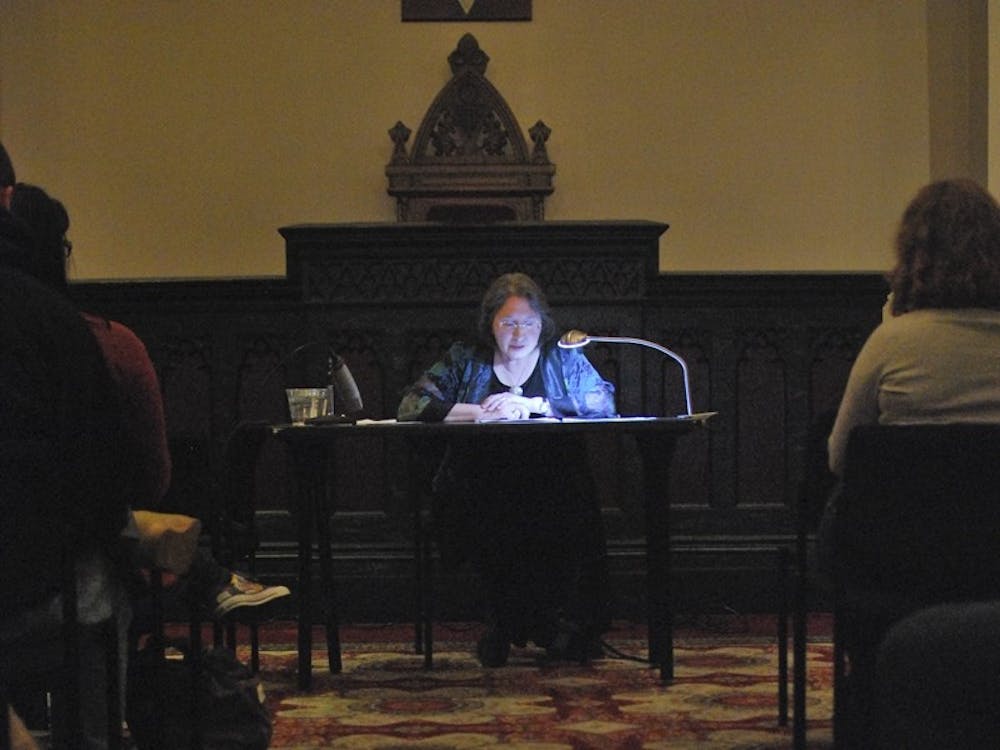Reading helped ease the pain of childhood abuse
English professor Paula Feldman’s grew up amid extreme mental, emotional and physical abuse. She credits literature for saving her life.
Sitting gingerly at a table facing a roomful of students and faculty Wednesday night, Feldman prepared to tell her real story for the first time. Per her request, several glasses of water were provided.
Feldman’s lecture, the latest installment of the Last Lecture series by the Carolina Scholars Association, had an immediate effect on the audience; they were intrigued from the start.
“The reason I have never told this story is that most parts of it are disturbing and painful,” she said.
She described her childhood, detailing all the abuse she’d undergone. The emotional abuse was the worst — her family constantly demeaned her, she said. They never once told her that she was loved. But she kept quiet.
“I had to live something of a double life,” she said. “I never spoke of the darkness at school. I became a pretty good actress. No one would have guessed that the smiling teenager went home and contemplated suicide daily.”
It was in this darkness that she managed to find the light. She found that she could escape the confines and trauma of her life and instead delve into a different world through literature. Through her voracious reading, she managed to not succumb to the abuse.
“A psychiatrist once told me that given the nature of my childhood, I should be a vegetable,” she said. “My experiences should have been so psychologically traumatizing that I shouldn’t have been able to function at all. It was literature that not only helped me to function, but at a very high level.”
At the age of 13, Feldman found a focus for her interests in literature and writing. She recounted the story of her brother’s bar mitzvah to explain the start of her feminist awakening.
“I couldn’t help noticing that I had turned 13 a year before my brother and there was no right of passage for me,” she said. “This just seemed to me so unjust.”
As Feldman grew older and entered college, a time of self-discovery for her, she realized that the struggle for racial equality and gender equity were intertwined. This realization encouraged her to overcome her obstacles and she was rewarded by being one of two female faculty members on the track to become a full teacher at the University of South Carolina in the 1970s.
Though Feldman’s lecture recounted the trauma in her childhood, it was clear by the humor that peppered the lecture, that she didn’t want pity for her past but instead wanted the students to understand the extent of the powerful affect literature had on her life.
“Many people grow up continuing the cycle of abuse,” she said. “I believe that my excursions in literature opened up to me the experiences and ideals that others were missing.”
Thoroughly engrossed in her words, students found the lecture to be very inspiring. Third-year English student Adam Merzel particularly liked how personal the lecture was.
“I did not expect it to be such a personal and anecdotal speech,” he said. “It was interesting to have a personal account of how literature plays a role in people’s lives.”

